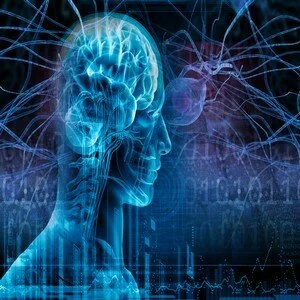Epilepsy is a transient abnormal brain functional disorder characterized by recurrent convulsions or/and loss of some sensory functions with or without loss of consciousness. The convulsion maybe focal at the onset but could then become generalized.The sensory symptoms include light flashes, sudden buzzing in the ear, unusually taste, and smell. All these depend on the part of the brain where the electrical discharges are coming from.
In many cases, the cause of epilepsy cannot be determined. Heredity is known to be a major cause; that is, children of epileptics are at higher risk of epilepsy; this could begin at any age. Epilepsy could also be due to medical conditions such as congenital abnormalities, brain injuries at birth, brain scars resulting from head injuries due to falls/road traffic accidents, brain tumours, blood vessel diseases and Alzheimer disease.
In many cases, the cause of epilepsy cannot be determined. Heredity is known to be a major cause; that is, children of epileptics are at higher risk of epilepsy; this could begin at any age. Epilepsy could also be due to medical conditions such as congenital abnormalities, brain injuries at birth, brain scars resulting from head injuries due to falls/road traffic accidents, brain tumours, blood vessel diseases and Alzheimer disease.
Epilepsy is not a communicable disease; it cannot spread from one person to another. It is not a mental illness and does not affect the intelligence of anyone who has it; some past great men had it.
The following can trigger an epileptic attack in a person who is an epileptic; repeated fast light flashes, television flickers, sudden loud noise or repetitive sounds, alcohol consumption, cigarette smoking, Stress, headache, menstruation, Lack of sleep or sleep (some epileptics have seizures only during their sleep).
From the above, you can see that some epileptic conditions are preventable, that is, it should not have occurred in the first place. Also you will notice that in epileptics, attacks could be prevented or the frequency reduced.
1.Use of Drugs
Several drugs are available for the treatment of epilepsy; the goal is to prevent or reduce frequency of attacks. They are either used singly or in combination but a lot of them have serious side effects. All the drugs are prescription drugs.
2.Good lifestyle
Alcohol consumption and cigarette smoking can individually trigger epileptic attack. Consequently, epileptics are advised to avoid alcohol and cigarette.
3.Adequate Sleep
Poor sleep or inadequate sleep can trigger an epileptic attack. For a healthy life, an adult should have a minimum of eight hours sleep every night. However, it must be pointed out that some epileptics have their attacks only while asleep. For this category; sleep serves no prevention.
4.Ante-natal and Hospital Delivery
Some epileptic conditions have been traced to congenital abnormalities and head injuries to the child during birth. Proper antenatal care and hospital delivery will reduce the incidence of congenital abnormalities and birth injuries and hence prevent epilepsy.
5.Obey Accident Prevention Regulations.
Scars resulting brain injuries due to falls and road traffic accident could be prevented by obeying simple traffic regulations such as the use of seat belts and helmets. All cases of domestic accidents involving injuries to the head must be reported immediately to the doctor who may request for a CT scan to rule any injury to the brain; this could help to prevent epilepsy in the future.
6.Appropriate Diet
Diet low in cholesterol can also help to prevent epilepsy in old age. High blood cholesterol, if is of the bad type, can narrow the inside of blood vessels thus reducing the blood and oxygen supply to the part of the brain supplied by the affected blood vessels.
7.Avoid trigger factors
Apart from alcohol, cigarette and inadequate sleep there are few other trigger factors; these include flash photography, television flickers, sudden loud noise and repetitive sounds. Stress is also a known trigger factor.







No Comments